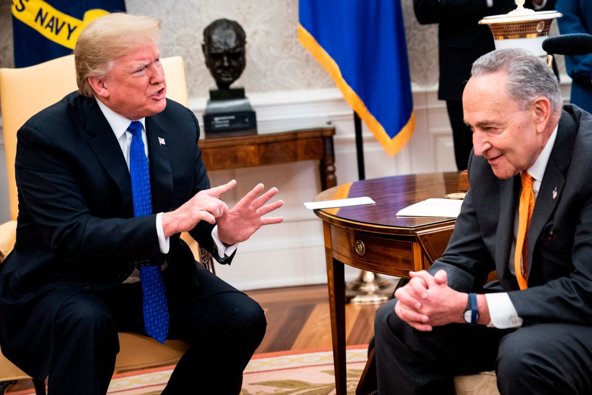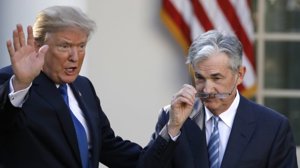
Senate Approves Trump’s $3.3T Bill as House Divisions Grow
Senate narrowly approves Trump’s $3.3T bill after Schumer forces name change; House faces deep GOP divides ahead of final vote.
Senate Drama as Schumer Strikes ‘Beautiful’ Title
The U.S. Senate has passed President Donald Trump’s $3.3 trillion spending bill, capping an all-night session marked by fierce debate, procedural showdowns, and razor-thin margins. Senate Minority Leader Chuck Schumer, D-N.Y., objected to the bill’s “One Big Beautiful Bill Act” title, invoking the Congressional Budget Act’s Byrd Rule. Presiding officer Sen. Pete Ricketts, R-Neb., upheld Schumer’s point of order, forcing the removal of the title just before the decisive vote.
Schumer criticized the bill as a “big ugly betrayal,” predicting catastrophic consequences including lost health insurance, job losses, and ballooning national debt. “Anyone who loses their health insurance doesn’t think it’s beautiful. Any mom who can’t feed her kid on $5 a day doesn’t think it’s beautiful,” Schumer told reporters, referencing deep policy concerns and the potential impact on vulnerable Americans. Progressive lawmakers including Rep. Alexandria Ocasio-Cortez, D-N.Y., echoed warnings about Medicaid cuts and negative effects on working families.
The bill passed 51-50, with Vice President JD Vance casting the tie-breaking vote. Senate Republicans Rand Paul of Kentucky, Susan Collins of Maine, and Thom Tillis of North Carolina joined all Democrats in opposition. Despite criticism, Vance called the package “a big win for the American people,” emphasizing tax cuts and enhanced border security. Sen. Lisa Murkowski, R-Alaska, also backed the bill after Republican leaders added Alaska-specific measures.
Trump Pressures House GOP as Conservatives Revolt
Following Senate passage, President Trump took to Truth Social, rallying House Republicans to deliver the bill to his desk by July 4 and urging them to ignore “grandstanders.” Trump praised the bill’s tax cuts, border security measures, and protections for Medicare and Social Security, insisting “the biggest winners will be the people of America.” He warned that only unity would secure passage, adding, “GET IT DONE!”
But House conservatives voiced frustration. Fiscal hawks in the Freedom Caucus called the bill’s spending cuts shallow, while moderates worried about Medicaid reductions. Rep. Andy Ogles, R-Tenn., filed an amendment to revert the bill to its original House version, criticizing the Senate’s revisions and accusing colleagues of “caving to an unelected staffer appointed by a Democrat.” Ogles and allies also objected to expanded state and local tax deductions and green energy funding. Rep. Chip Roy, R-Texas, decried the influence of the Senate parliamentarian, calling it “service to the swamp,” while Rep. Ralph Norman, R-S.C., and Rep. Andy Harris, R-Md., signaled their opposition could stall the measure in the House Rules Committee.
Trump Targets Massie, Musk Joins Critics
As the bill approached its final hurdles, Trump publicly attacked Rep. Thomas Massie, R-Ky., for opposing the legislation on fiscal grounds. Trump predicted Massie would lose his primary, calling him “Rand Paul Junior” and “nothing constructive.” Massie warned that the bill would add $20 trillion to the national debt over a decade and argued on the House floor, “This bill dramatically increases deficits in the near-term, but promises our government will be fiscally responsible five years from now. Where have we heard that before?”
Meanwhile, former Trump ally and government employee Elon Musk aligned with Massie, posting on X that he would work to unseat lawmakers who voted for what he called the “biggest debt ceiling increase in history.” Musk’s criticism intensified the GOP’s internal rifts as leaders pushed to deliver the bill by the July 4 deadline.
With key differences still unresolved between the Senate and House versions, the coming days will test party unity and leadership. The outcome will shape U.S. fiscal policy and influence the political landscape heading into the next election cycle.






